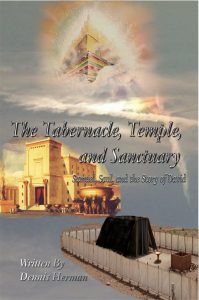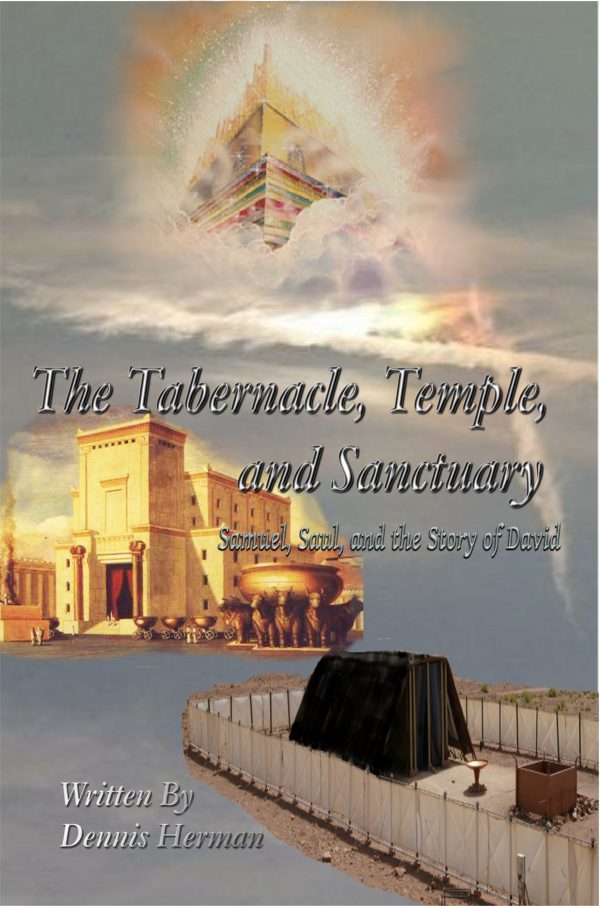Saul Exceeded His Authority 1 Samuel 14
1 Samuel 14:1-10 NLTse One day Jonathan said to his armor bearer, “Come on, let’s go over to where the Philistines have their outpost.” But Jonathan did not tell his father what he was doing. (2) Meanwhile, Saul and his 600 men were camped on the outskirts of Gibeah, around the pomegranate tree at Migron. (3) Among Saul’s men was Ahijah the priest, who was wearing the ephod, the priestly vest. Ahijah was the son of Ichabod’s brother Ahitub, son of Phinehas, son of Eli, the priest of the LORD who had served at Shiloh. No one realized that Jonathan had left the Israelite camp. (4) To reach the Philistine outpost, Jonathan had to go down between two rocky cliffs that were called Bozez and Seneh. (5) The cliff on the north was in front of Micmash, and the one on the south was in front of Geba. (6) “Let’s go across to the outpost of those pagans,” Jonathan said to his armor bearer. “Perhaps the LORD will help us, for nothing can hinder the LORD. He can win a battle whether he has many warriors or only a few!” (7) “Do what you think is best,” the armor bearer replied. “I’m with you completely, whatever you decide.” (8) “All right then,” Jonathan told him. “We will cross over and let them see us. (9) If they say to us, ‘Stay where you are or we’ll kill you,’ then we will stop and not go up to them. (10) But if they say, ‘Come on up and fight,’ then we will go up. That will be the LORD’s sign that he will help us defeat them.”
Normally I wouldn’t have considered including this chapter, based on the fact, it has little to do with the Tabernacle. But this series of books does contain a lot of information about the priesthood God expects His people to one day fulfill. This series of stories in Samuel’s books tells us how Saul pushed his authority and set precedents other kings would follow, and exceed. The history of Israel’s kings shows how kings constantly exceeded the authority God gave them. This teaches lessons not only about those former kings, but lessons about leaders today.
For some reason Jonathan decided to take matters into his own hands. Jonathan left camp with only his trusty armor bearer and a few prayers. We see Jonathan’s trust in God, and how Jonathan communicated with God. It may seem Jonathan used a primitive form of communication with God, but any start is a good beginning.
It took a lot of guts to climb up a cliff to face an enemy on top. At any moment a Philistine could have thrown his spear, or a few rocks at Jonathan and his armor bearer and ended the story right there. But Jonathan had faith. A faith he must have shared with his armor bearer for him to climb next to Jonathan.
Climbing that cliff showed how faith is gained. It is always an uphill battle, with the enemy in a position to wipe you out if given the chance. And like Jonathan, it always seems we are out numbered all the time. Facing those odds builds faith. Seeing God’s hand in those predicaments helps to build faith quicker.
God added another piece of evidence for His defense. The ephod was on site, worn by Ahijah, who would have been the high priest at that time. This shows us, Samuel was not the high priest, but somehow Ahijah was chosen, or appointed high priest. The author didn’t supply the exact details. It is possible Saul appointed the high priest? That would have been beyond Saul’s authority as king. But later kings claimed that authority.
Since Saul heavily relied on Samuel, it is unlikely he would have taken the role of the high priest away from Samuel. 1 Samuel chapter 7 told us how the Ark returned to Israel, and they called Samuel. There is no mention of any other priest, or high priest at that point. Was Samuel the high priest? Did Samuel take over for Eli after he died?
The main point is, Saul had access to the Ephod and the two stones used to communicate with God. Those stones were kept in a pouch, close to the high priest’s heart. Now we know why those stones were hidden. They were out of sight and out of mind to Saul.

Bring the Ephod or Not
1 Samuel 14:11-19 NLTse (11) When the Philistines saw them coming, they shouted, “Look! The Hebrews are crawling out of their holes!” (12) Then the men from the outpost shouted to Jonathan, “Come on up here, and we’ll teach you a lesson!” “Come on, climb right behind me,” Jonathan said to his armor bearer, “for the LORD will help us defeat them!” (13) So they climbed up using both hands and feet, and the Philistines fell before Jonathan, and his armor bearer killed those who came behind them. (14) They killed some twenty men in all, and their bodies were scattered over about half an acre. (15) Suddenly, panic broke out in the Philistine army, both in the camp and in the field, including even the outposts and raiding parties. And just then an earthquake struck, and everyone was terrified. (16) Saul’s lookouts in Gibeah of Benjamin saw a strange sight–the vast army of Philistines began to melt away in every direction. (17) “Call the roll and find out who’s missing,” Saul ordered. And when they checked, they found that Jonathan and his armor bearer were gone. (18) Then Saul shouted to Ahijah, “Bring the ephod here!” For at that time Ahijah was wearing the ephod in front of the Israelites. (19) But while Saul was talking to the priest, the confusion in the Philistine camp grew louder and louder. So Saul said to the priest, “Never mind; let’s get going!”
Jonathan and his friend were out numbered ten to one. But that didn’t stop them. They gave credit to God before the battle began, and God didn’t let them down. On the other hand, Jonathan’s father, Saul was busy counting troops. Saul called for the ephod. He was finally going to give God a chance to answer, but Saul decided, he didn’t have enough time to wait for God.
Maybe that earthquake was enough for Saul to feel God’s presence. Maybe that earthquake was all Saul needed to encourage his men. That earthquake showed how God helps people, and that help sort of overflows on others. Blessings have a way of doing that.
God Saved Israel
1 Samuel 14:20-23 NLTse (20) Then Saul and all his men rushed out to the battle and found the Philistines killing each other. There was terrible confusion everywhere. (21) Even the Hebrews who had previously gone over to the Philistine army revolted and joined in with Saul, Jonathan, and the rest of the Israelites. (22) Likewise, the men of Israel who were hiding in the hill country of Ephraim joined the chase when they saw the Philistines running away. (23) So the LORD saved Israel that day, and the battle continued to rage even beyond Beth-aven.
Why did God save Israel? Was it because He loved His people, or to honor Jonathan’s faith? We can’t be sure. The earthquake, the sound of the charge, and God’s presence in those Israelites turned every traitor back into a loyal Israelite. Something happened. How did God make all those things happen at once?
Saul Kept Giving Orders
1 Samuel 14:24-30 NLTse (24) Now the men of Israel were pressed to exhaustion that day, because Saul had placed them under an oath, saying, “Let a curse fall on anyone who eats before evening–before I have full revenge on my enemies.” So no one ate anything all day, (25) even though they had all found honeycomb on the ground in the forest. (26) They didn’t dare touch the honey because they all feared the oath they had taken. (27) But Jonathan had not heard his father’s command, and he dipped the end of his stick into a piece of honeycomb and ate the honey. After he had eaten it, he felt refreshed. (28) But one of the men saw him and said, “Your father made the army take a strict oath that anyone who eats food today will be cursed. That is why everyone is weary and faint.” (29) “My father has made trouble for us all!” Jonathan exclaimed. “A command like that only hurts us. See how refreshed I am now that I have eaten this little bit of honey. (30) If the men had been allowed to eat freely from the food they found among our enemies, think how many more Philistines we could have killed!”
After sending the high priest with the ephod away, Saul decided to enact a new law. He told everyone under his command not to eat anything until evening. Saul wanted his revenge on the Philistines. What did that mean? That showed how Saul blamed the Philistines for his mistakes. If those Philistines didn’t create a threat, Saul wouldn’t have ignored Samuel’s command to wait. Saul had problems taking responsibility for his own actions. He also had a superiority complex he displayed by making up some senseless rule. Little did Saul know how that decision would backfire. God was working hard to get Saul to take responsibility for his own actions.
Jonathan didn’t have to hear the story behind that order not to eat anything. Jonathan knew it was a foolish law that would lead to nothing but disaster. Little did Jonathan know, he would be in the middle of that controversy. Jonathan was not afraid to admit he ate something, and point out how foolish that law was.
